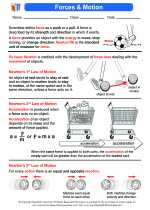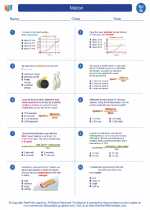Cells
Cells are the basic building blocks of all living organisms. They are the smallest unit of life and are responsible for carrying out all the functions necessary for an organism to survive and thrive.
Types of Cells
There are two main types of cells:
- Prokaryotic Cells: These cells do not have a distinct nucleus and are typically found in single-celled organisms such as bacteria.
- Eukaryotic Cells: These cells have a true nucleus and are found in plants, animals, fungi, and protists.
Cell Structure
Eukaryotic cells have a more complex structure compared to prokaryotic cells. The key structures found in a eukaryotic cell include:
- Cell Membrane: The outer boundary of the cell that controls the movement of substances in and out of the cell.
- Cytoplasm: The gel-like substance that fills the cell and houses organelles.
- Nucleus: The control center of the cell that contains genetic material (DNA).
- Organelles: These are specialized structures within the cell that carry out specific functions, such as mitochondria for energy production and endoplasmic reticulum for protein synthesis.
Cell Functions
Cells perform a wide range of functions necessary for life, including:
- Metabolism: The chemical processes that occur within a cell to maintain life.
- Reproduction: Cells can reproduce to create new cells, either through division or fusion.
- Growth and Development: Cells enable an organism to grow and develop throughout its lifespan.
- Response to Stimuli: Cells can respond to changes in their environment.
Cell Theory
The cell theory is a fundamental concept in biology and states:
- All living organisms are composed of one or more cells.
- The cell is the basic unit of structure and organization in organisms.
- All cells come from pre-existing cells through the process of cell division.
Study Guide
To study cells effectively, consider the following tips:
- Understand the differences between prokaryotic and eukaryotic cells.
- Memorize the key structures and functions of a eukaryotic cell.
- Learn about the cell theory and its significance in biology.
- Practice drawing and labeling a typical eukaryotic cell.
- Explore real-life examples of cells and their functions in different organisms.
With a solid understanding of cells, you'll have a strong foundation for delving into more complex biological concepts.
.






